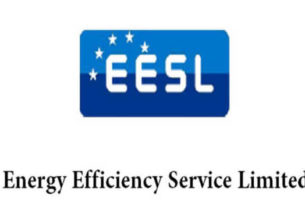UJALA AND SLNP
08, Jan 2020

Prelims level : Schemes
Mains level : GS-III Conservation and Environmental Pollution
Why in News?
- The Government of India’s UJALA & Street Lighting National Programme (SLNP) complete five successful years.
UJALA:
- Unnat Jyoti by Affordable Lighting for All (UJALA) is a zero-subsidy scheme launched by the Government in 2015.
- It is touted as the world’s largest domestic lighting project.
Objectives:
- The UJALA scheme also known as the LED-based Domestic Efficient Lighting Programme (DELP) aims to promote the efficient usage of energy for all i.e., its consumption, savings and lighting.
- According to the UJALA scheme, LED bulbs would be distributed by the Electricity Distribution Company at subsidized rates to every grid-connected customer with a metered connection.
Implementation of UJALA scheme:
- Implementation of the UJALA scheme was done successfully in terms of investment and risk factors. The scheme was implemented as a joint contribution of EESL and DISCOM. Some of the outputs that were put forward by the UJALA scheme were:
- Replacing 200 million ordinary light bulbs by LED bulbs.
- Load reduction of 5000 MW.
- To reduce the emissions caused by greenhouse gases by 79 million tonnes of carbon dioxide.
SLNP:
- The SLNP is a government scheme to promote energy-efficiency in India.
- Energy Efficiency Services Limited (EESL), a joint venture of PSUs under the Power Ministry, is the implementing agency for SLNP.
- EESL, launched in 2015, has already replaced 50 lakh street lights with LED bulbs in more than 500 cities of India.
- To bring in mass-scale transformation, EESL has adopted a unique strategy by joining hands with states, municipal bodies and Urban Local Bodies (ULBs).
- Under the programme, EESL replaces the conventional street lights with LEDs at its own costs, with no upfront investment by the municipalities, thereby making their adoption even more attractive.
- Over a period, EESL is repaid through the consequent reduction in energy and maintenance cost of the municipality.
- This scheme is expected to enable peak demand reduction of 500 MW, annual energy savings of 190 crore kWh, and reduction in 15 lakh tons of CO2.
Objectives:
- Mitigate climate change by implementing energy-efficient LED-based street lighting.
- Reduce energy consumption in lighting which helps DISCOMs to manage peak demand.
- Provide a sustainable service model that obviates the need for upfront capital investment as well as additional revenue expenditure to pay for the procurement of LED lights.
- Enhance municipal services at no upfront capital cost of municipalities. The Government of India’s UJALA & Street Lighting National Programme (SLNP) complete five successful years.







